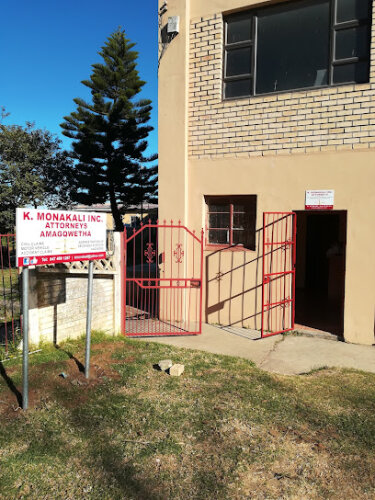Best Toxic Mold Lawyers in East London
Share your needs with us, get contacted by law firms.
Free. Takes 2 min.
List of the best lawyers in East London, South Africa
About Toxic Mold Law in East London, South Africa
Toxic mold refers to certain types of mold that can cause health problems in humans when present in living or working spaces. In East London, South Africa, the humid coastal climate can contribute to mold growth, particularly in buildings with water leaks, poor ventilation, or flooding history. While there is no specific legislation called "toxic mold law," affected individuals may rely on a combination of public health, tenant-landlord, and personal injury laws to address mold-related issues.
Why You May Need a Lawyer
People may require legal help with toxic mold issues for a variety of reasons:
- Rental disputes: Tenants may face landlords unwilling to remediate mold or compensate for damages to health or property.
- Property sales: Buyers might discover hidden mold in their new homes, leading to disputes with sellers or agents.
- Health concerns: If toxic mold exposure results in serious health issues, individuals may need advice on seeking damages or compensation.
- Workplace safety: Employees exposed to mold at work might need advocacy to secure remediation or treatment.
- Insurance claims: Navigating insurance claims for mold-related damage can be complex and may require legal expertise.
Local Laws Overview
In South Africa, there are no nationally codified "toxic mold" statutes, but several legal frameworks are relevant:
- Rental Housing Act (No. 50 of 1999): Obligates landlords to provide habitable premises, which includes being free of health hazards like mold.
- Occupational Health and Safety Act (No. 85 of 1993): Requires employers to ensure the workplace is safe and healthy, covering mold exposure.
- Common Law: Recognizes the duty of care property owners owe to tenants, employees, and visitors regarding safety and health.
- Consumer Protection Act (No. 68 of 2008): May be invoked if buyers or tenants were misled about a property's mold status or health risks.
- Municipal By-Laws: City of East London's health or building departments may have additional requirements for property maintenance and safety.
Frequently Asked Questions
What is considered toxic mold?
Toxic mold often refers to Stachybotrys chartarum (black mold), but any mold that causes allergic or toxic reactions may be classed as "toxic." The key concern is the health impact, not just appearance.
Who is responsible for removing toxic mold in a rental property?
Generally, landlords must maintain habitable premises. If mold is due to structural issues or water ingress, the landlord is typically responsible for remediation.
What should I do if I find mold in my home?
Notify your landlord or property manager in writing, keep records, and, if possible, photograph the damage. Seek medical advice if you experience symptoms.
Can I break my lease if there is toxic mold?
If the premises become uninhabitable and the landlord fails to remediate, you may have grounds to terminate your lease under the Rental Housing Act, but legal advice is strongly recommended.
What health problems can toxic mold cause?
Health issues include allergies, asthma, respiratory infections, sinus problems, and, in severe cases, toxic reactions affecting the immune and neurological systems.
What evidence do I need for a legal claim about toxic mold?
Evidence often includes medical reports, photographs, inspection reports, tenancy agreements, correspondence with the landlord, and witness statements.
Can I claim damages for health problems caused by mold?
If you can prove negligence or failure to maintain habitable conditions, you may be able to claim damages for medical costs, pain and suffering, or loss of income.
Are there government standards for indoor air quality regarding mold?
There are general public health guidelines but no strict national standards for indoor mold exposure. However, municipalities may have regulations concerning housing conditions.
How do I report a landlord or employer for failing to address mold?
You can contact the East London municipality's Department of Environmental Health or, for workplace issues, the Department of Employment and Labour. Keeping a detailed record of complaints is crucial.
Does home insurance cover mold damage?
Insurance policies vary. Mold caused by events covered (like burst pipes) may be included, but damage due to neglect or gradual leaks is often excluded. A lawyer can help clarify your coverage and assist in claims.
Additional Resources
If you need information or wish to report concerns related to toxic mold, consider the following:
- Buffalo City Metropolitan Municipality (East London) Environmental Health Division: Assists with housing and public health concerns.
- Department of Employment and Labour: Handles complaints relating to workplace health and safety.
- Legal Aid South Africa: Provides affordable or free legal services for qualifying individuals.
- South African Human Rights Commission: For issues involving the right to safe and healthy housing.
- Private Environmental Consultants: Can perform mold inspections and provide reports for legal purposes.
Next Steps
If you're experiencing issues with toxic mold in East London, South Africa:
- Document the problem thoroughly with photos, reports, and medical records.
- Report the issue to your landlord, employer, or relevant authority in writing.
- Seek medical attention if you are experiencing health symptoms.
- Contact local authorities or regulatory bodies as needed.
- If the issue remains unresolved or you have suffered health or financial harm, consult a lawyer with experience in rental housing, personal injury, or occupational safety.
- Prepare all relevant documentation for your legal consultation.
Lawzana helps you find the best lawyers and law firms in East London through a curated and pre-screened list of qualified legal professionals. Our platform offers rankings and detailed profiles of attorneys and law firms, allowing you to compare based on practice areas, including Toxic Mold, experience, and client feedback.
Each profile includes a description of the firm's areas of practice, client reviews, team members and partners, year of establishment, spoken languages, office locations, contact information, social media presence, and any published articles or resources. Most firms on our platform speak English and are experienced in both local and international legal matters.
Get a quote from top-rated law firms in East London, South Africa — quickly, securely, and without unnecessary hassle.
Disclaimer:
The information provided on this page is for general informational purposes only and does not constitute legal advice. While we strive to ensure the accuracy and relevance of the content, legal information may change over time, and interpretations of the law can vary. You should always consult with a qualified legal professional for advice specific to your situation.
We disclaim all liability for actions taken or not taken based on the content of this page. If you believe any information is incorrect or outdated, please contact us, and we will review and update it where appropriate.










